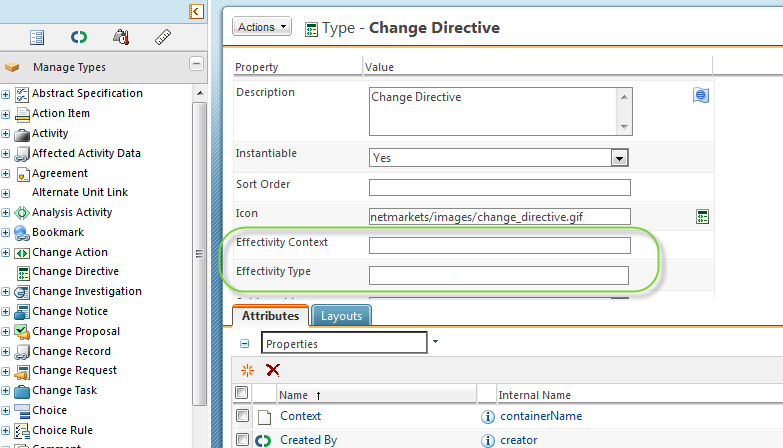Managing Effectivity
Windchill Aerospace & Defense Configuration Items and Design Solutions configuration management includes the ability to manage effectivity at the configuration level. This allows you to specify the product-level serial numbers for which a design solution is appropriate for a given configuration item.
Windchill Aerospace & Defense Configuration Items and Design Solutions configuration management methodology requires the following setup tasks before the configuration management features can be used in production:
Creating a Part for Effectivity Context
In order for the configuration level effectivity features to be enabled, the product structure must have a part (usually an end item) to give the effectivity context. This part is usually the top assembly of the product structure. To create a part for effectivity context, use the following procedure:
1. Create a
new part and specify a value of
Serial Number for the
Default Trace Code attribute in the
New Part window.
2. Click Next and specify that the part is an end item, if desired.
3. Fill in all other required fields, specify Effectivity, and then click Finish. Note the part number for the change directive effectivity context.
Managing Change Directive Effectivity Properties
Change directive types have two effectivity properties that you must specify. These values are managed in the
Type and Attribute Management utility.
• Effectivity Context—The part number for the part you created (usually an end item) as a context for the effectivity used by the given change directive type. The specified part is used as the context for effectivety ranges generated by the system for the given change directive. For more information, see
Managing Effectivity.
• Effectivity Type—The type for the effectivity ranges that are generated for change directives. This value can be used to specify part filters based on effectivity range. This text field requires the following format: internal name of the custom filter type followed by number sign (#) followed by internal name of the effectivity type attribute. For example, com.company.OurFilter#msn.
